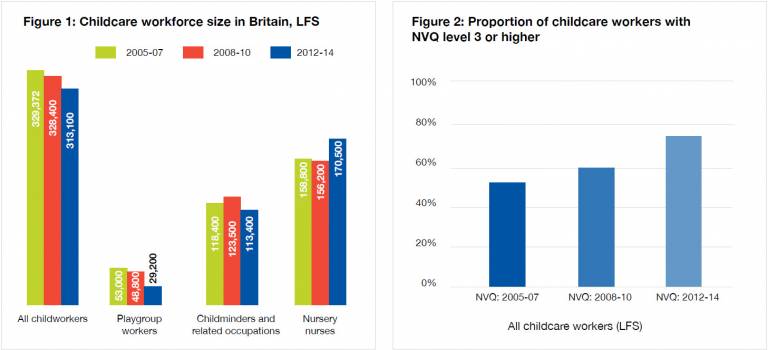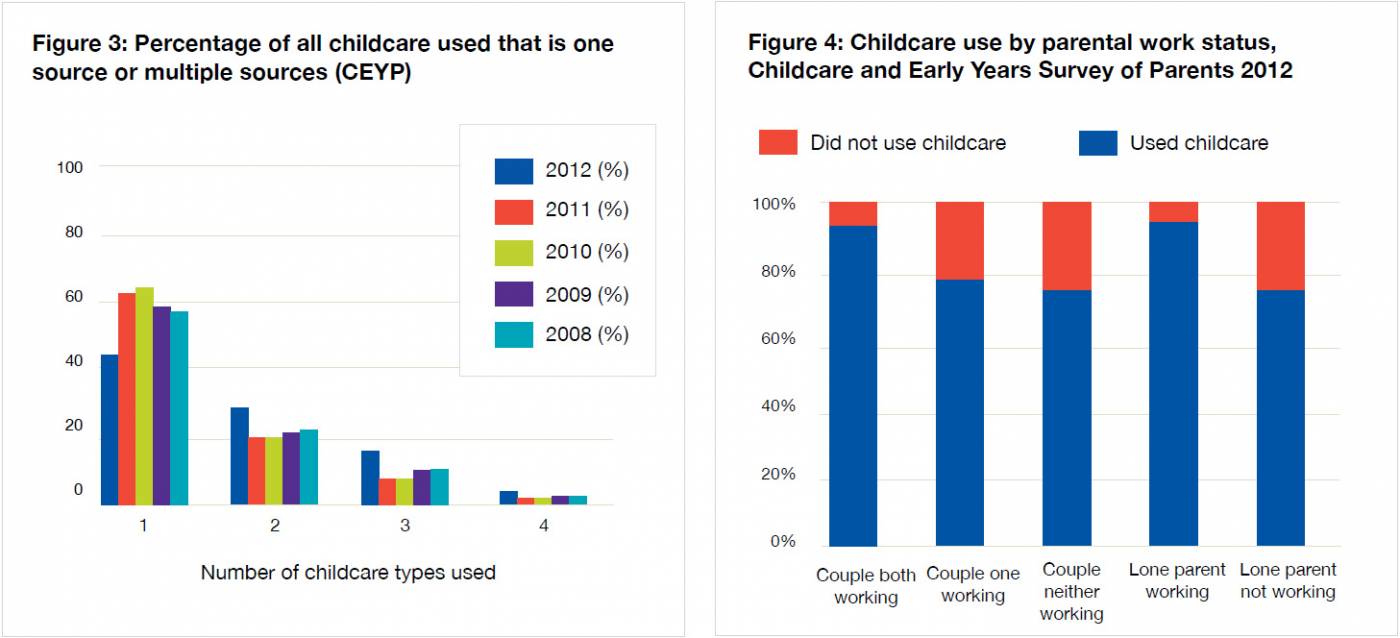Childcare in Britain
Obtaining a better understanding of childcare provision and usage to inform future government policy.

19 June 2017
By Jon Waldren.
'Provision and use of preschool childcare in Britain', a secondary analysis of childcare using large-scale national datasets, published in July 2015, raised the possibility of a shortage in the childcare workforce once the economy begins to improve.
The pre-school workforce

- The research found that the workforce is better qualified than in the past with 75% of childcare staff now holding NVQ level 3 or higher qualifications, representing an increase of 12% between 2005 and 2014.
- The sector is predominantly female (98%), with little change in gender profile in the last 10 years, and young in relation to the general workforce (an average age of 36 years compared to 41 years for other occupations).
- The workforce is persistently poorly paid in comparison with other occupations. Pay is particularly low for childcare workers employed in the private sector, £5.60 per hour compared with £7.80 in the public sector.
- The workforce has shrunk by around 5% since 2005.
- There are more people who describe themselves as childminders than those registered with Ofsted.
Types of childcare provision
- The study found that 68% of families used some form of childcare. Of these families 42% were using more than one type of childcare.
- Around a third of all childcare arrangements were informal with the most common, 31%, being that undertaken by grandparents.
- Mothers who are in full time employment are more likely to use nurseries.
- Childcare choices are related to the mother's level of education. Those educated to degree level are more likely to use formal childcare. The majority of mothers with only a GCSE level of education do not use formal childcare.
Poor pay may encourage well-qualified workers to move to better paid work in other sectors once the recession is over. This will make recruitment harder for providers looking to grow their workforce to cover the Government's increased offer of 30 funded hours per week for three and four-year-olds of working parents from 2017.
The Government is not adequately funding its offer of 30 free hours of childcare. This may have the effect of nurseries and crèches raising their fees. Parents already pay high childcare fees and increased costs may limit access to childcare for many.
The report found that the standard occupation categories being used in the sector were a poor fit for the workforce as it is constituted today. It is recommended that the Office for National Statistics review their categorisation to better reflect the increasing professionalism of the current workforce.
'Provision and use of preschool childcare in Britain', recommends setting-up a formal review to examine the complex and interwoven issues of childcare.
 Close
Close


